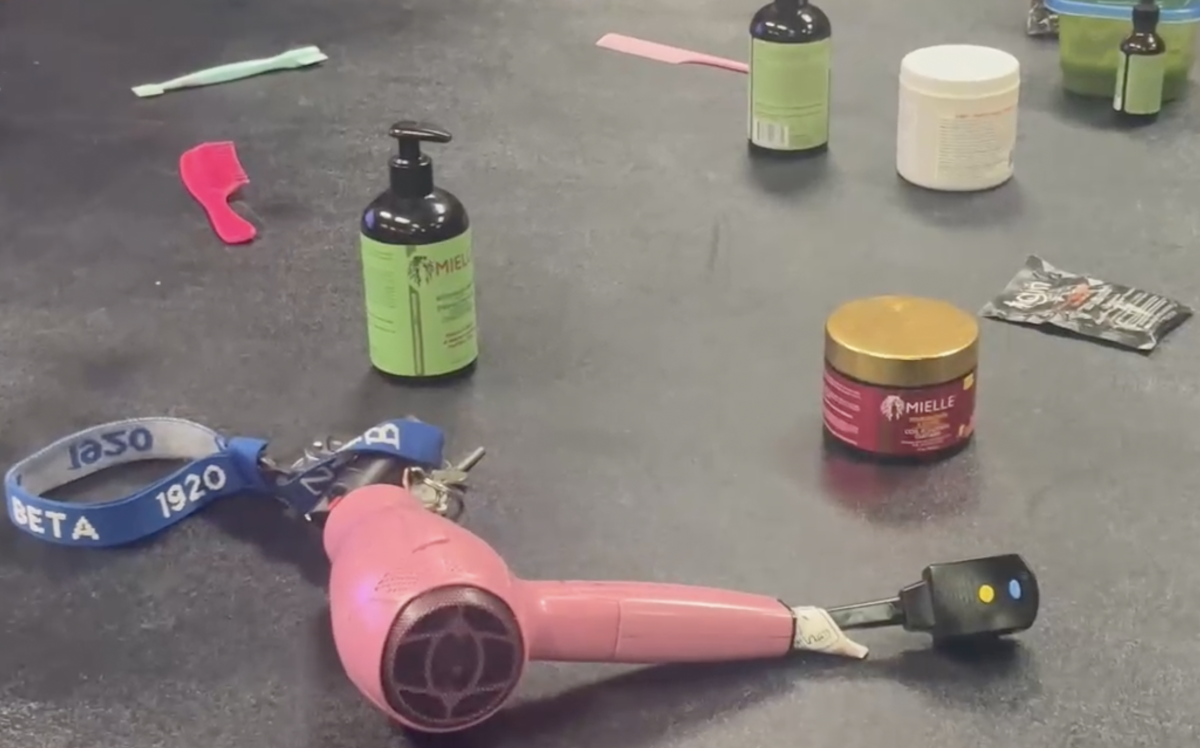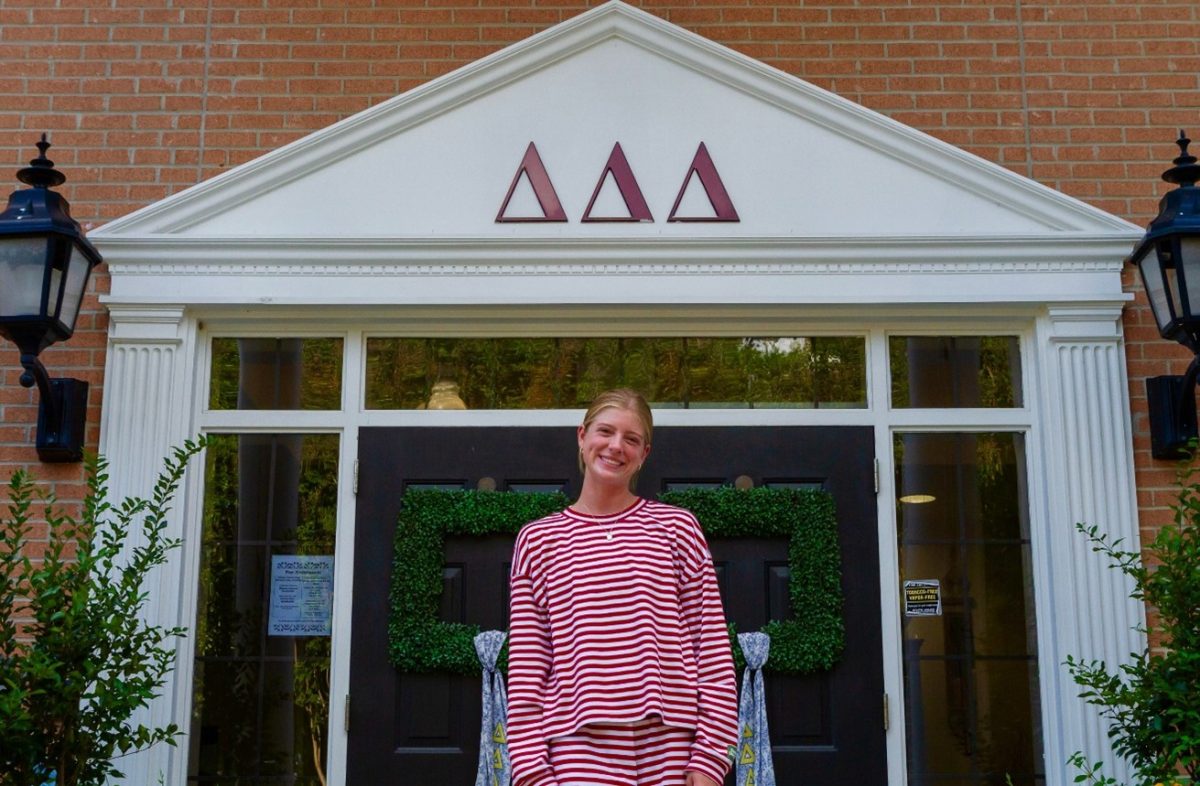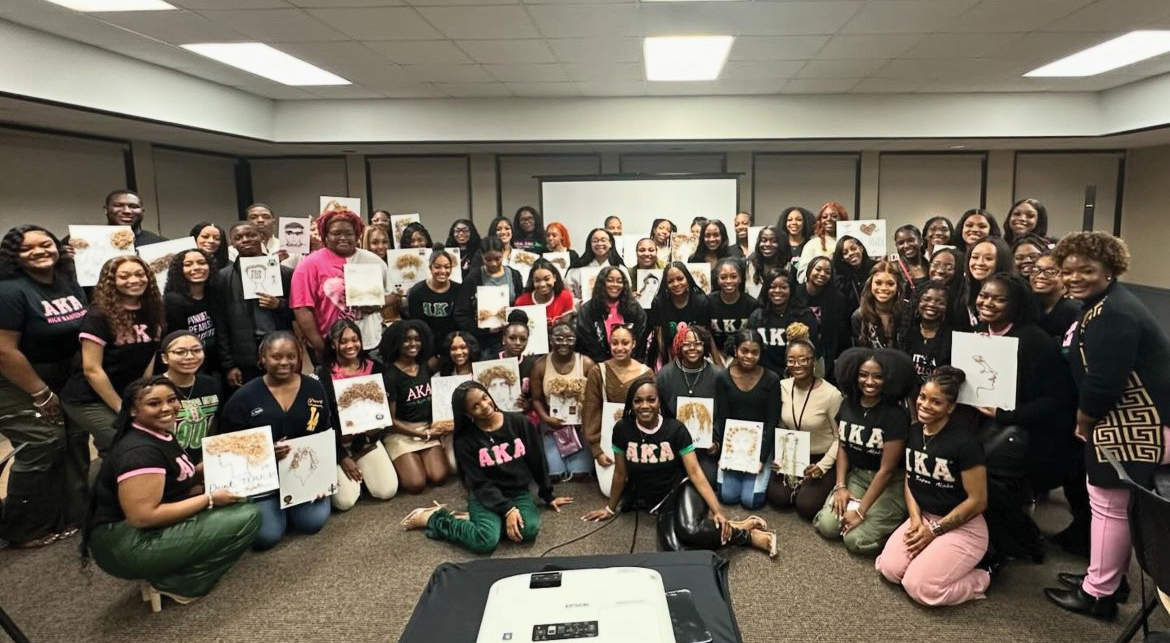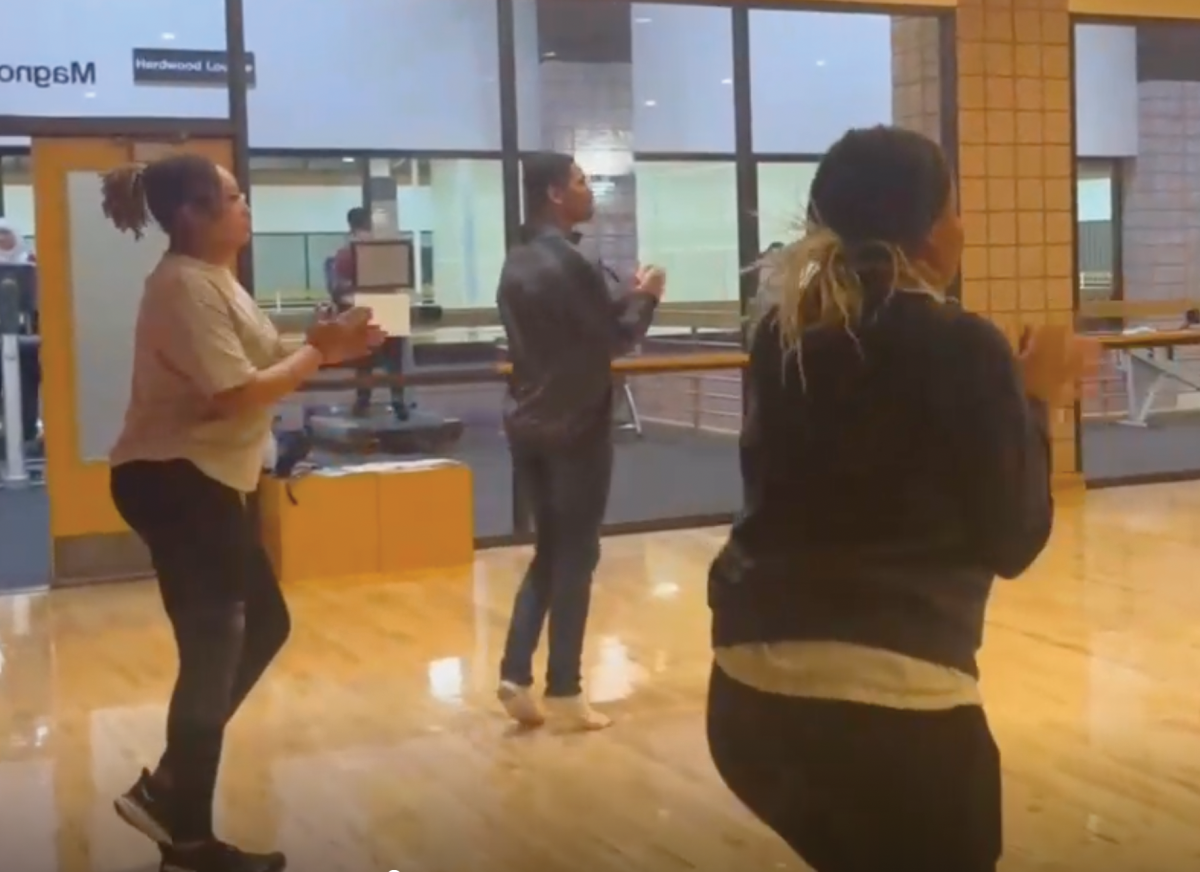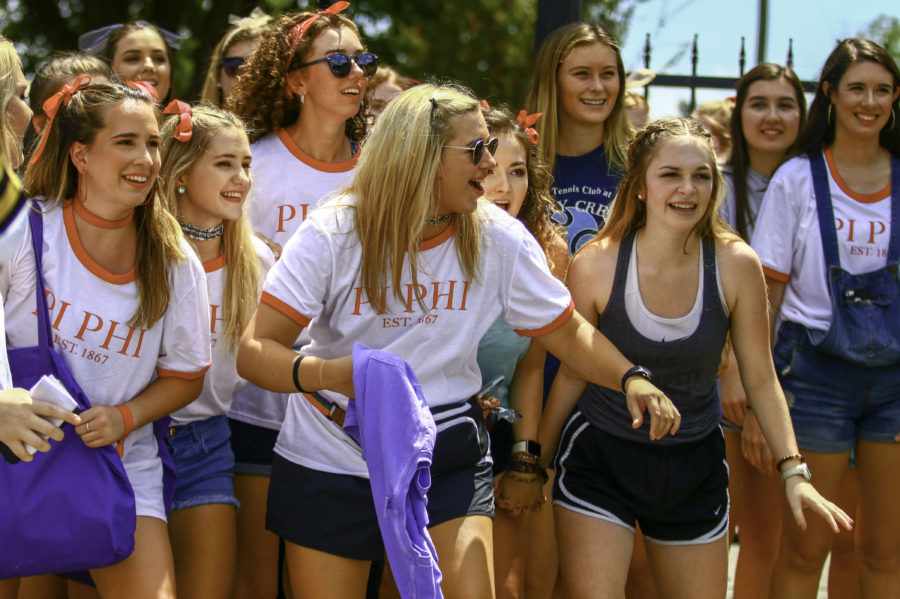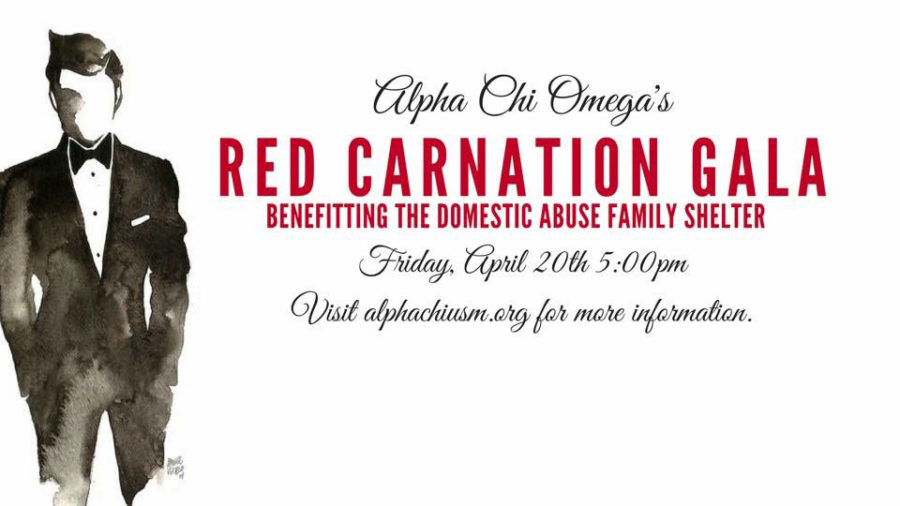The Ladies of the Lambda Theta Chapter of Zeta Phi Beta Sorority Incorporated hosted a talk table about the protective hairstyle edition with open conversations from their target audience.
The event was welcome to all African American women and men on the USM campus. It was on Jan. 24 from 5:20 to 6:30 in Union Room G in the Thad Cochran Center. A signup sheet was provided at the door of the event.
“It was to get the conversation going about the stigmas of African Americans wearing their hairstyles in different ways and tips and tricks to kind of keep with our hair, male and female,” said Kaliyah Means, president of the Lambda Theta.
The open discussion ranged from different topics. It went from protective hairstyles, unique hair types, hair maintenance, hair care products, and more. The event also notably discussed the stigma around women’s hairstyles in the workforce.
The Ladies of the Lambda Theta Chapter even had scenarios about hair. These scenarios created conversations on the professionalism of hair wraps, length of hair, hair products for men and women and how to style natural hair, among others.
Means also stated that they will have more table talks like this one throughout the semester.
“So just be on the lookout for that,” she added.
Zeta Phi Beta Sorority, Incorporated was founded on January 16, 1920, at Howard University, Washington, D.C. It was the first National Pan-Hellenic Council organization to centralize its operations in a national headquarters, the first to charter a chapter in Africa, the first to form auxiliary groups, and the first to be constitutionally bound to a fraternity, Phi Beta Sigma Fraternity, Incorporated. The sorority takes pride in its continued participation in transforming communities through volunteer services from members and its auxiliaries.
The Lambda Theta Chapter of Zeta Phi Beta Sorority Incorporated is part of the University of Southern Mississippi National Panhellenic Council. The National Pan-Hellenic Council was established in 1930 at Howard University as a national coordinating body for the nine historically African American fraternities and sororities which had evolved on American college and university campuses.






















